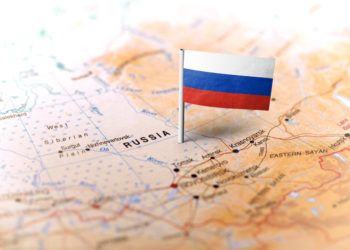We are into the 8th month of Russia’s war against Ukraine. It is estimated that the war has caused almost USD $50bn damage to housing infrastructure, $9bn damage to business infrastructure, $4bn damage to educational infrastructure, to pick just a few Statista stats. Ukraine is about 233,000 sq mi (roughly: Texas), with a population of 44m (roughly: California) — of which maybe 35% have been displaced by the conflict. One in three people displaced; one in six have had to flee to other countries, including 2m children. It is pretty much impossible to imagine trying to keep your business going, trying to keep earning your living, in such circumstances. “Solidarity” with Ukraine has come in several guises. How has the scholarly publishing sector continued to respond?

-
Bans: Russia has been banned from the forthcoming Frankfurt Book Fair, as it was banned from the London Book Fair earlier this year.
-
Jobs: The Polish Book Chamber has launched an initiative to help Ukrainian refugees find publishing jobs. #ScienceForUkraine is a group of volunteers supporting the continuation of research within Ukraine and / or by displaced Ukrainian researchers by collating information, providing materials and helping people find new jobs – success stories are shared on Twitter. (Karin Wulf wrote in April about the “other way round” challenges of scholars elsewhere trying to continue their studies of Russia and Eastern Europe).
-
Hardship: There are various fundraisers to support Ukrainian publishing professionals who have lost income – for example, this one by the German Publishers’ and Booksellers’ Association, the Börsenverein which will distribute funds via the Ukrainian Association of Publishers and Booksellers; DOAJ and EIFL are among those who launched the SUES (Supporting Ukrainian Editorial Staff) which has raised over $20,000.
-
Reporting: you may have seen “Next Generation Leader” Olga Rudenko on the front of Time magazine. You can help her online newspaper, the Kyiv Independent, keep reporting from the frontline.
-
Military support: The Ukrainian Library Association (ULA) asks you to donate money to the Ukrainian army (via the special fundraising account opened by the National Bank of Ukraine, which has also opened an account to raise funds for humanitarian rather than military assistance). The Ukrainian Library Association’s statement from March is heartfelt, heartrending, and powerful in its requests, which (to focus on those most relevant to our sector) includes (I quote)
-
“ask your governments to officially ban (or at least recommend to stop) accessing scientific information resources produced by your publishers and providers for Russian Federation;”
-
“stop all professional connections, not to participate in common projects with libraries, other educational and cultural institutions of the Russian Federation and representatives of these institutions;”
-
“ask the international organizations, of which you and your institutions are members, to exclude all Russian institutions from its members, and their representatives from governing bodies;”
-
“share true information about this war”
-
Discussion
10 Thoughts on "8 Months On: Ukraine Still Needs Our Support"
About SUES, the following may also be of interest: https://operas.hypotheses.org/5456
dear Charly,
many thanks for your contribution!
very thoughtful,
best Matthias
Tatyana Deryugina has launched an impactful campaign to support scholars in Ukraine – https://deryugina.com/how-you-can-help-ukraine/
And of course ScienceForUkraine – https://scienceforukraine.eu/
The Russian government’s attack on Ukraine is largely funded by revenues from oil and gas exports. Publishers can reduce their contribution to this funding by de-gasification of heating in their office buildings, switching all company cars to electric vehicles and replacing the majority of business travel with online meetings.
This strategy would also have the happy coincidence of aligning with much-needed efforts to reduce carbon emissions within the publishing industry. (And no, carbon offsetting does not count.)
I’m with you in principle though I think most of the countries where publishers are based have stopped buying Russian fuel? I don’t know much about this and have been Googling without getting to a definitive answer (“Australia, Britain, Canada and the United States imposed outright bans on Russian oil purchases” in May but what about gas .. “EU nations will stop buying Russian crude oil imported by sea from 5 December” but what about gas / pipelines, etc.). Either way I’d support your overall point that we as a sector need to continue / increase our efforts to reduce fuel consumption. There’s a major publisher across the road from me that keeps its lights on ALL NIGHT. You have inspired / reminded me to find someone there I can raise that with.
I agree that some steps have been taken to reduce consumption of Russian oil and gas, but much more could be done to complete the process. For example 30% of diesel in the UK comes from Russia. (Source BBC News.) So reducing diesel consumption would reduce revenue to the Russian government and would also improve both local air quality and reduce carbon emissions.



